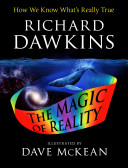Explanation of Isotopes
The number of neutrons in an atom's nucleus is less fixed than the number of protons: many elements have different versions, called isotopes, with different numbers of neutrons. For example, there are three isotopes of carbon, called Carbon-12, Carbon-13 and Carbon-14. The numbers refer to the mass of the atom, which is the sum of the protons and neutrons. Each of the three has six protons. Carbon-12 has six neutrons. Carbon-13 has seven neutrons and Carbon-14 has eight neutrons. Some isotopes, for example Carbon-14, are radioactive, which means they change into other elements at a predictable rate, although at unpredictable moments. Scientists can use this feature to help them calculate the age of fossils. Carbon-14 is used to date things younger than most fossils. for example ancient wooden ships.
Notes:
The different types of carbon have different numbers of neutrons and therefore different masses.
Folksonomies: atoms carbon isotopes
Taxonomies:
/science/physics (0.659924)
/society/dating (0.277668)
/science/chemistry (0.206503)
Keywords:
neutrons (0.996451 (negative:-0.344980)), different numbers (0.843019 (negative:-0.344980)), ancient wooden ships (0.842908 (neutral:0.000000)), Carbon-14 (0.842016 (neutral:0.000000)), example Carbon-14 (0.806434 (neutral:0.000000)), isotopes (0.792202 (negative:-0.344980)), protons (0.754842 (neutral:0.000000)), unpredictable moments (0.710239 (negative:-0.376544)), predictable rate (0.705912 (negative:-0.597274)), different types (0.702409 (negative:-0.344980)), different versions (0.686111 (neutral:0.000000)), Carbon-13 (0.652386 (neutral:0.000000)), atom (0.619373 (negative:-0.200782)), Carbon-12 (0.584253 (neutral:0.000000)), elements (0.581578 (negative:-0.597274)), masses (0.556709 (negative:-0.344980)), sum (0.552592 (neutral:0.000000)), Explanation (0.545742 (negative:-0.344980)), fossils (0.541810 (positive:0.512540)), mass (0.540191 (negative:-0.200782)), date (0.537489 (neutral:0.000000)), things (0.537463 (neutral:0.000000)), fossils. (0.537357 (neutral:0.000000)), Scientists (0.536856 (positive:0.512540))
Concepts:
Chemical element (0.945429): dbpedia | freebase
Neutron (0.857825): dbpedia | freebase | opencyc
Atomic number (0.850111): dbpedia | freebase
Atom (0.821257): dbpedia | freebase | opencyc
Carbon (0.805995): dbpedia | freebase | opencyc
Carbon-14 (0.785920): dbpedia | freebase | yago
Isotope (0.741715): dbpedia | freebase | opencyc
Carbon-12 (0.697591): dbpedia | freebase | yago





